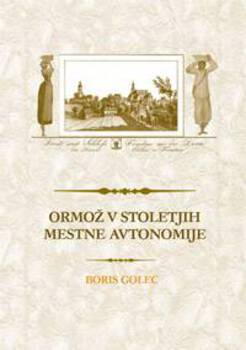Ormož v stoletjih mestne avtonomije. Posestna, demografska, gospodarska, socialna, etnična in jezikovna podoba mesta ob Dravi 1331–1849
Delo vrednoti in išče razloge za posestno, demografsko, poklicno ter etnično-jezikovno strukturo najvzhodnejšega in vseskozi najmanjšega slovenskega zgodovinskega mesta, ležečega ob Dravi, tik ob meji s Hrvaško.
The work quantifies and seeks the reasons behind the property, demographic, occupational and ethno-linguistic structure of the easternmost Slovenian historical town situated on the Drava River, near the Croatian border. The most important source used is the census of the town’s entire adult population from 1724, an outstanding and valuable document in both Slovenian and broader area by also indicating the local origin of nearly each and every person. The local origin serves as a reference to the methods of analysing personal and family names, which in such research serve as the foundation of establishing the ethno-linguistic structure of urban populations. Ormož, still in the mid-18th century the most Slovenian among the seven cities of Lower Styria, experienced significant changes from the last third of the same century onwards: the influx of specialised craftsmen and representatives of the merchant class from the German-speaking area, combined with general trends, opened the door wide to the linguistic and in the 19th century also national-political Germanisation of the town’s inhabitants.
Downloads

Series
License

This work is licensed under a Creative Commons Attribution-NonCommercial-NoDerivatives 4.0 International License.
